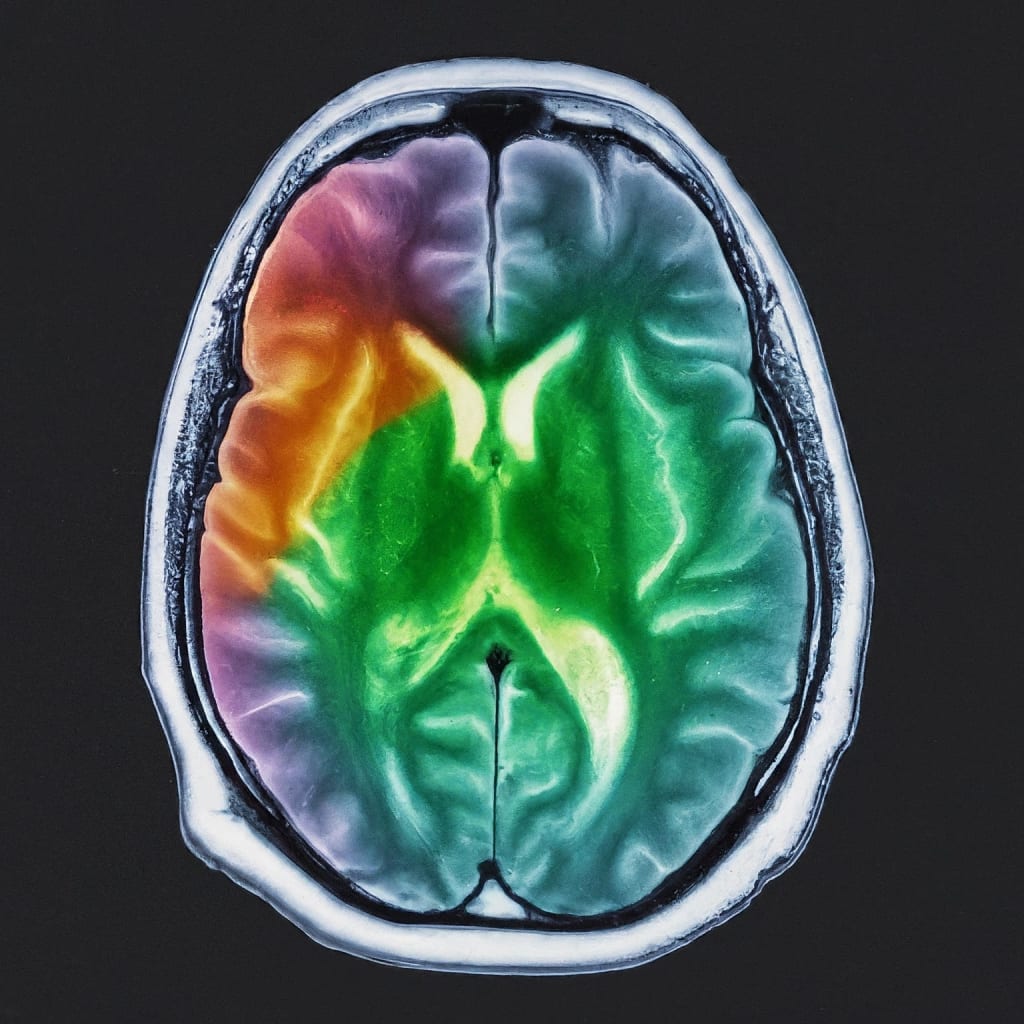A Day in the Life of a Neuro AI Researcher
delve into the daily routine of a NeuroAI researcher

Neuro AI research, the intersection of neuroscience and artificial intelligence, is a burgeoning field that holds immense promise for understanding the intricacies of the human brain and developing advanced AI systems. In this article, we'll delve into the daily routine of a NeuroAI researcher, exploring the challenges, rewards, and moments of inspiration that define their work.
What is Neuro AI Research?
Neuro AI research focuses on unraveling the mysteries of the human brain by leveraging insights from neuroscience to enhance artificial intelligence algorithms and models. It involves studying neural networks, cognitive processes, and brain functions to develop AI systems capable of mimicking human-like intelligence.
Importance of Neuro AI Research
Neuro AI research holds the potential to revolutionize various fields, including healthcare, robotics, and education. By understanding how the brain processes information and learns, researchers can design more efficient algorithms and improve the performance of AI systems.
Morning Routine
Wake-Up Call
The day typically begins with a wake-up call, often accompanied by a strong cup of coffee to kickstart the brain. Neuro AI researchers understand the importance of starting the day with a clear mind and ample energy.
Breakfast Ritual
A nutritious breakfast is essential to fuel the brain for the day ahead. Whether it's a hearty bowl of oatmeal or a protein-packed smoothie, researchers prioritize nourishing their bodies to optimize cognitive function.
Commuting to the Lab
After breakfast, researchers make their way to the lab, where groundbreaking discoveries await. Some prefer to walk or bike, using the time to mentally prepare for the day's experiments and analyses.
Research Work
Reviewing Previous Data
Before diving into new experiments, researchers review previous data to identify patterns, anomalies, and potential areas for further exploration. This step is crucial for building upon existing knowledge and ensuring the continuity of research projects.
Conducting Experiments
With a clear plan in mind, researchers conduct experiments using state-of-the-art equipment and techniques. Whether studying neural networks or testing AI algorithms, each experiment is meticulously designed to generate meaningful data.
Analyzing Results
Once the experiments are complete, researchers analyze the results, often employing advanced statistical methods and machine learning algorithms. This stage involves interpreting complex data sets and drawing actionable insights to advance the field of Neuro AI research.
Collaboration and Meetings
Brainstorming Sessions
Collaboration is key in Neuro AI research, as researchers from diverse backgrounds come together to share ideas and brainstorm solutions to complex problems. Brainstorming sessions foster creativity and innovation, leading to breakthrough discoveries.
Team Meetings
Regular team meetings provide an opportunity for researchers to discuss progress, challenges, and future directions for their projects. These meetings promote collaboration, accountability, and a sense of camaraderie among team members.
Collaborative Projects
Many Neuro AI researchers engage in collaborative projects with colleagues from other institutions or disciplines. These projects often involve interdisciplinary research, combining expertise in neuroscience, computer science, and engineering to tackle pressing societal issues.
Lunch Break
Relaxation Time
During the lunch break, researchers take time to relax and recharge, whether it's enjoying a stroll outside or practicing mindfulness techniques to reduce stress. Taking breaks is essential for maintaining focus and productivity throughout the day.
Brain Fuel
A balanced lunch comprising brain-boosting foods like leafy greens, whole grains, and lean proteins replenishes energy levels and enhances cognitive function. Researchers understand the importance of nourishing both body and mind to sustain peak performance.
Afternoon Tasks
Writing Research Papers
In the afternoon, researchers devote time to writing research papers and documenting their findings and insights for publication in peer-reviewed journals. Writing is a critical aspect of scientific communication, allowing researchers to share their discoveries with the global scientific community.
Attending Seminars and Conferences
Many Neuro AI researchers attend seminars and conferences to stay abreast of the latest developments in the field and network with fellow researchers. These events provide opportunities for learning, collaboration, and professional growth.
Lab Activities
Interacting with Lab Equipment
Neuro AI researchers interact with a variety of lab equipment, from EEG machines to fMRI scanners, to collect data and conduct experiments. Familiarity with these tools is essential for ensuring the accuracy and reliability of research results.
Troubleshooting Experiments
Despite meticulous planning, experiments don't always go as expected. NeuroAI researchers are adept at troubleshooting technical issues and adjusting experimental protocols to overcome challenges and achieve meaningful results.
Evening Wind-Down
Wrap-Up Tasks
As the day draws to a close, researchers complete any remaining tasks, such as organizing data, responding to emails, and preparing for the next day's experiments. A sense of satisfaction accompanies the completion of each task, knowing that progress has been made toward advancing Neuro AI research.
Reflecting on the Day
Before leaving the lab, researchers take a moment to reflect on the day's accomplishments and lessons learned. Reflection fosters growth and self-awareness, enabling researchers to continuously improve their skills and approaches.
Leisure Activities
Outside the lab, Neuro AI researchers enjoy engaging in leisure activities that nourish their creativity and well-being. Whether it's reading a novel, practicing a musical instrument, or spending time with loved ones, balancing work and leisure is essential for maintaining a healthy work-life balance.
Conclusion
A day in the life of a Neuro AI researcher is characterized by curiosity, collaboration, and dedication to advancing our understanding of the human brain and artificial intelligence. From conducting experiments to writing research papers, each task contributes to the collective pursuit of knowledge and innovation in this dynamic field.
FAQs
1. What qualifications do I need to become a Neuro AI researcher?
To become a Neuro AI researcher, you typically need a background in neuroscience, computer science, or a related field, along with advanced degrees such as a Ph.D. or M.D.-Ph.D.
2. What career opportunities are available in Neuro AI research?
Neuro AI research offers diverse career opportunities in academia, industry, and government agencies, including roles such as research scientist, data scientist, computational neuroscientist, and AI engineer.
3. How can I stay updated on the latest developments in Neuro AI research?
To stay updated on the latest developments in Neuro AI research, consider subscribing to scientific journals, attending conferences and seminars, and following leading researchers and institutions on social media platforms.
4. What are some challenges faced by Neuro AI researchers?
Some challenges faced by Neuro AI researchers include:
• Complexity of the Brain: The human brain is incredibly complex, with billions of neurons and trillions of connections. Understanding its intricacies poses a significant challenge for researchers.
• Data Acquisition and Analysis: Gathering high-quality data from neural experiments and processing it efficiently requires sophisticated equipment and computational techniques. Ensuring the accuracy and reliability of data can be time-consuming and resource-intensive.
• Interdisciplinary Nature: Neuro AI research sits at the intersection of multiple disciplines, including neuroscience, computer science, and artificial intelligence. Bridging the gap between these fields and integrating diverse expertise can be challenging.
• Ethical Considerations: As Neuro AI technologies advance, ethical concerns regarding privacy, consent, and potential misuse arise. Researchers must navigate these ethical dilemmas responsibly to ensure the responsible development and deployment of AI systems.
• Funding and Resources: Securing funding for Neuro AI research projects and access to cutting-edge equipment and facilities can be competitive and challenging. Researchers often rely on grants and collaborations to support their work.
• Validation and Reproducibility: Ensuring the validity and reproducibility of research findings is essential for advancing scientific knowledge. However, replicating complex experiments and validating results can be challenging, especially in the rapidly evolving field of Neuro AI.
• Integration of AI Models: Integrating AI models with neuroscience theories and experimental data requires careful consideration and validation. Developing AI algorithms that accurately simulate brain function and behavior is a complex and ongoing endeavor.
• Communication Barriers: Communicating complex Neuro AI concepts and findings to diverse audiences, including policymakers, healthcare professionals, and the general public, can be challenging. Effective science communication skills are essential for bridging these communication gaps.
• Limited Understanding of the Brain: Despite significant advancements, our understanding of the brain remains incomplete. Unraveling its mysteries requires continuous exploration and innovation, presenting both opportunities and challenges for Neuro AI researchers.
Addressing these challenges requires collaboration, innovation, and a commitment to advancing the frontiers of Neuro AI research responsibly and ethically.
About the Creator
James Moody
Follow me and you will find great benefit from the stories that enrich your professional life. I will transfer to you my accumulated practical and life experiences.






Comments
There are no comments for this story
Be the first to respond and start the conversation.